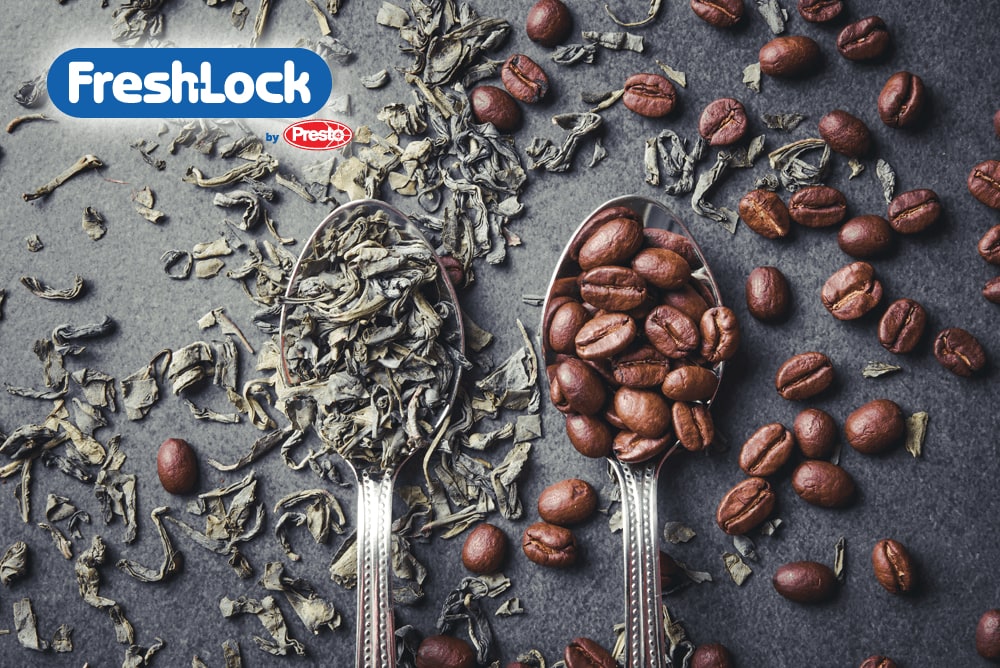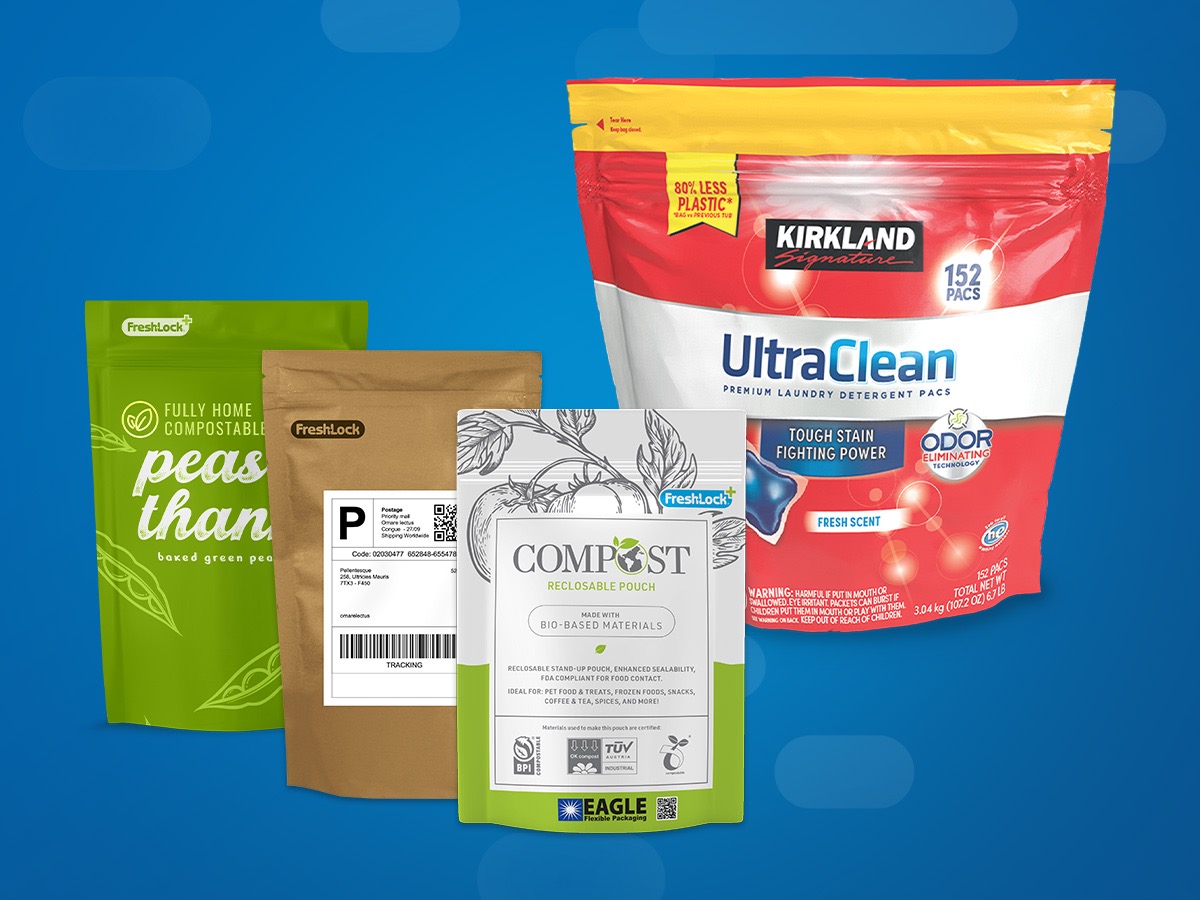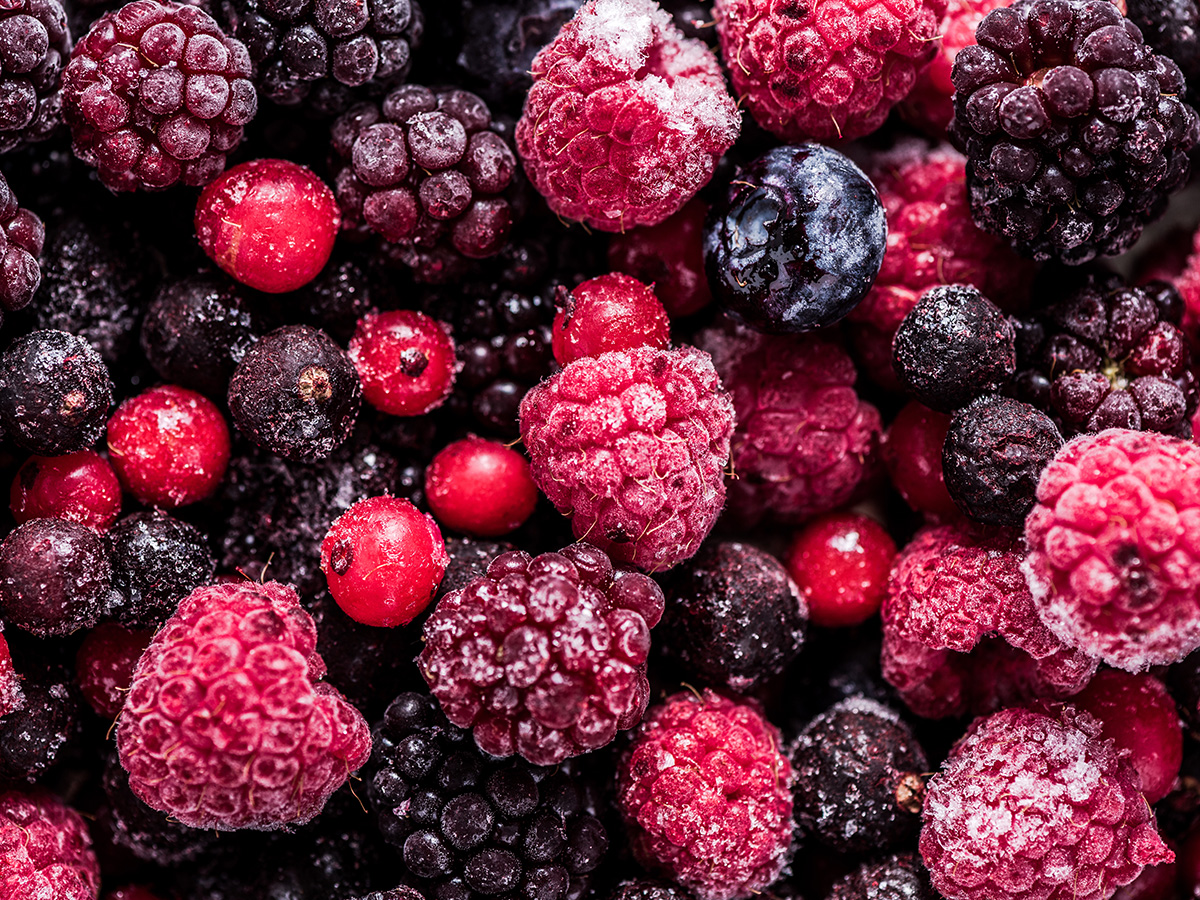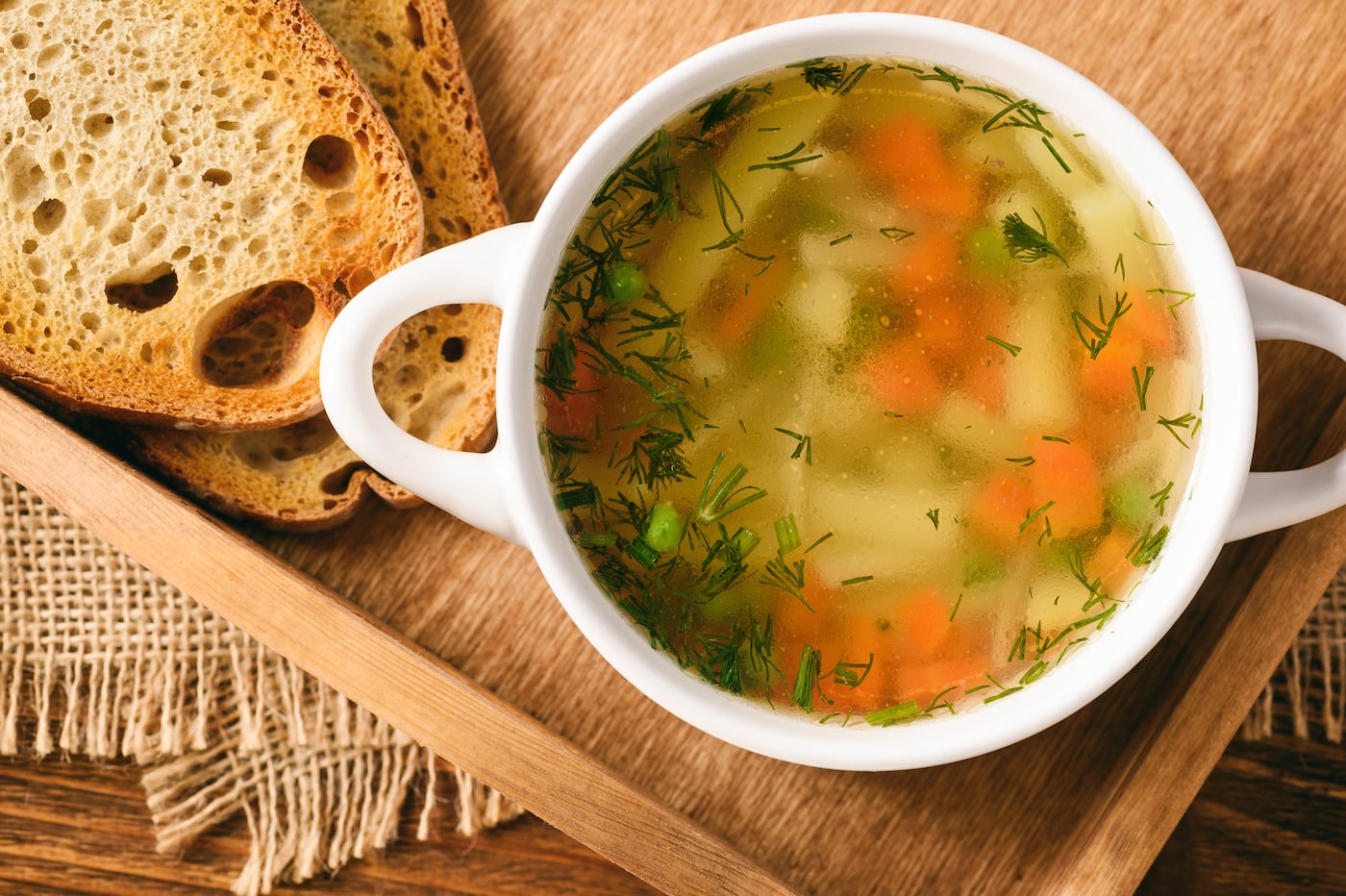
Find Your Cup of Tea: 4 Ways Coffee & Tea Brands Can Differentiate with Packaging
It’s a morning ritual for many people to start their day with a cup of bold coffee or earthy tea – but there are more alternatives than ever showing up on store shelves.
PMMI shares that between now and 2028, the beverage market is expected to grow over $15 billion to $45.5 billion. For coffee and tea brands, this means more competition, more products on the shelf, and more chances for shoppers to choose another brand.
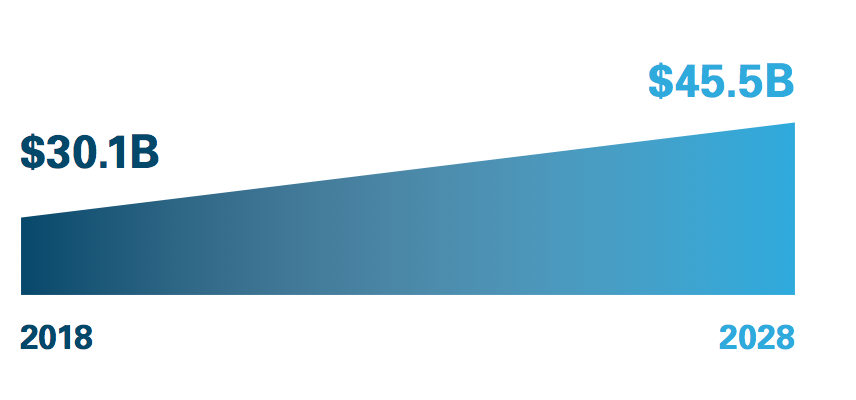 Source: PMMI Beverage Trends in Packaging and Processing, 2018
Source: PMMI Beverage Trends in Packaging and Processing, 2018
Packaging can give brands a unique competitive advantage – along with bold graphics, packaging is often the first thing to get noticed. Research shows that it takes an average of seven seconds of a consumer to decide if they want to buy a product. On top of that, one-third of a consumer purchase is based on packaging alone.
To win at the shelf and stay ahead of the competition, coffee and tea brands must pay attention to consumer trends and break away from the norm to get noticed.
The good news is that there are options. Here, we’ll cover four trending topics that will help you make a splash in this segment of the beverage market.
Keep It Fresh
“Functional teas are the ideal beverage for those looking for a better-for-you beverage, particularly among iGen (Generation Z) consumers,” shares Mintel. “Over a third of iGens say they would pay more for coffee/tea with added health benefits.”
Help to preserve flavors and added functional benefits with packaging that extends shelf life and quality. Let’s take a glimpse at the traditional packaging for reference:
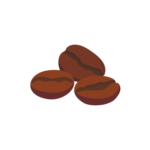 The current flat bottom coffee bag in the market is an inexpensive packaging option that is popular amongst the majority of coffee brands. Most often, brands use metal tin ties or resealable tape strips to allow consumers to reclose the package, often leaving air gaps in the packaging and exposing the grounds and reducing freshness altogether.
The current flat bottom coffee bag in the market is an inexpensive packaging option that is popular amongst the majority of coffee brands. Most often, brands use metal tin ties or resealable tape strips to allow consumers to reclose the package, often leaving air gaps in the packaging and exposing the grounds and reducing freshness altogether.
 For years, tea has been packaged in cardboard boxes. A wax-lined bag is inside, filled with multiple tea bags. The purpose of the wax-lined bag is to keep moisture out; however, this provides no barrier to protect the freshness of the tea itself. Alternatively, loose leaf tea is typically packaged is a tin canister. While product protection is high, this method can be inconvenient for consumer transportation and create supply chain inefficiencies for brands.
For years, tea has been packaged in cardboard boxes. A wax-lined bag is inside, filled with multiple tea bags. The purpose of the wax-lined bag is to keep moisture out; however, this provides no barrier to protect the freshness of the tea itself. Alternatively, loose leaf tea is typically packaged is a tin canister. While product protection is high, this method can be inconvenient for consumer transportation and create supply chain inefficiencies for brands.
Advancements in flexible package formats and closures such as the Fresh-Lock® mini Slider allow both coffee and tea brands to package products in small format standup pouches. Adding sliders or zippers to flexible packaging helps consumers ensure their pouches are completely closed. Plus, pairing closures with flexible packaging will increase the package barrier and offer the fresh, bold flavors consumers look for.
Be Bold … Like a Dark Roast
Head to the coffee and tea aisle in the grocery store and you’ll discover how similar packages are in shape and appearance.
“The number one challenge that coffee and tea brands are facing right now is on-shelf differentiation,” shares Fresh-Lock’s Senior Manager of Market Development Todd Meussling. “The only way brands are distinguishing themselves is through packaging graphics.”
Cognizant transitions from flat bottom pouches or tea boxes to standup pouches with clear film and resealability can be extremely impactful.
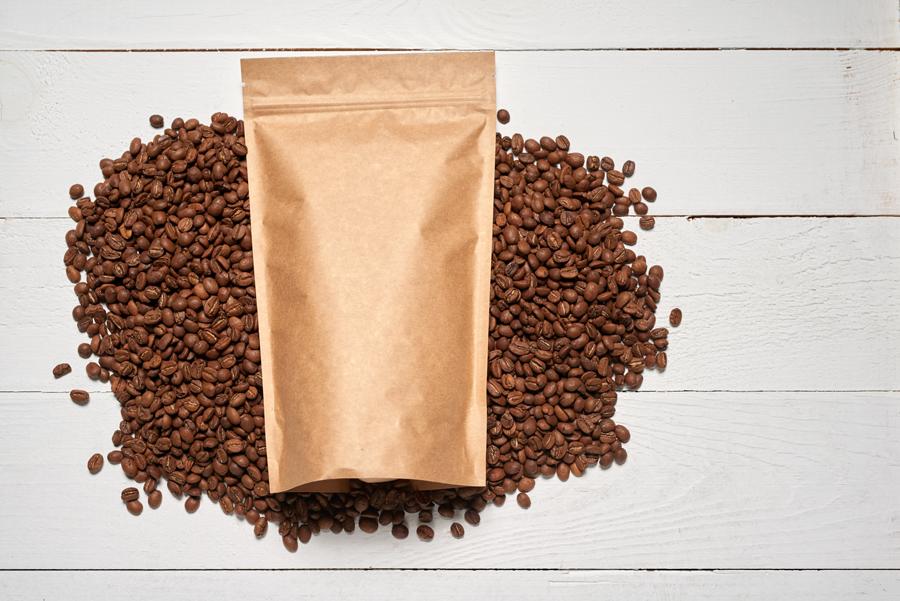
To make an impact, Meussling recommends choosing a standup pouch or a unique-shaped pouch that will stand out amongst other like-packages on the shelf. “Clear pouching film can also now be engineered with barrier options to extend shelf life and more,” he adds.
As consumers become more and more interested in ingredients and how their products are produced, a clear pouch or window adds a level of transparency between the consumer and the brand. Seeing is believing, and transparency allows consumers to see the goodness inside the packaging at the first moment of truth.
Make Things Easy
Convenience trumps all when it comes to consumer preference. Consumers want, demand, and expect this feature in their packaging. Today’s traditional formats are not conducive to on-the-go lifestyles or ease-of-use preferences.
Loose leaf tea packaged in rigid are hard to transport to and from the office and individual tea packs do not have enough protection alone. Resealable standup packaging delivers the convenience consumers continually demand. In fact, PMMI’s 2018 Beverage Trends Report revealed that convenience is listed as most important in the tea segment when compared to other beverage items.
For coffee packaging, when tin ties fall off or resealable tape gets filled with grounds, consumers are forced to repackage the coffee. This is not only inconvenient, but frustrating. By incorporating resealable features like zippers and sliders directly into the packaging rather than adding to it, you’ll deliver an ultra-convenient, value-added package that has been proven to be successful at creating return shoppers in other countries and markets.
Meussling shares that he and the Fresh-Lock® team have seen sliders used on tea packaging in tea-driven countries for years. “We’ve seen it in the Middle East and India where they’ve made the switch to flexible resealable packaging with sliders,” he adds.
While sliders are a premium closure offering that fits the price per pouch, he adds that press-to-close zippers are an option too. “If the right press-to-close zipper is used, the package can be very functional and offer value-added convenience,” he says.
You can learn more about the difference between zippers and sliders and when to use them in our recent article.
Think Green
PMMI’s 2018 Beverage Trends report also revealed that sustainability is rated one of the most important functions in the tea segment.
Generally speaking, flexible packaging results in a number of different sustainability benefits throughout a product’s entire life cycle when compared to other formats. From material reduction, lightweighting/source reduction, transportation benefits, shelf life extension, reduced materials to landfill, and a higher product-to-package ratio, flexible packaging adds a significant value overall (FPA, “A Holistic View of the Role of Flexible Packaging in a Sustainable World,” 2018).
 The current packaging for coffee utilizes many materials.
The current packaging for coffee utilizes many materials.
“You’ve got a metal tin tie that’s coated with another component, then that’s adhered with a glue of some sort to the metalized packaging film,” shares Meussling. “That’s a wide range of dissimilar materials in one package – and that’s not very sustainable. We want to try to move more materials to the same family so that they can more easily be broken down and recycled, or we can see sustainable benefits from them.”
 Loose leaf tea tins, on the other hand, take up much more space than flexible packaging in terms of warehousing and transportation. Not only does the flexible material weigh less, it is much more compact. With empty metal canisters, brands end up shipping a lot more “air” than needed.
Loose leaf tea tins, on the other hand, take up much more space than flexible packaging in terms of warehousing and transportation. Not only does the flexible material weigh less, it is much more compact. With empty metal canisters, brands end up shipping a lot more “air” than needed.
“At a basic level, this means that there’s more room for extra products so that a greater quantity can be transported in one go, thus helping to reduce fuel costs, CO2 emissions and the customer’s carbon footprint,” explains PackagingNews. “It’s not just transportation where these benefits can be felt; flexible packaging takes up less shelf space, whilst also providing increased volume within the packaging itself, meaning product content can be increased.”
If your brand is looking to differentiate from competitors while pleasing consumers and offering a more sustainable option, flexible resealable packaging just might be your answer. At Fresh-Lock®, we take the time to understand your brand and make recommendations that not only work well on shelf, but in your packaging operations as well.
If you’re looking to take the next step or are looking for some additional resources, check out our latest articles that discuss the difference between zipper sliders and press-to-close sliders and show you ways to get started with this packaging format. Plus, check out our latest development, the mini Slider, that allows small format packages like coffee and tea bags to utilize slider closures. Contact us at 800-265-0750 or online to discuss your next big idea.

 Back to Blog
Back to Blog